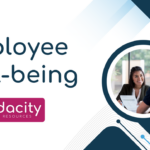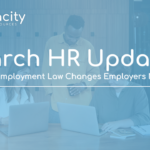The ROI of Vacation
The summer months are the perfect time to contemplate the return on investment (ROI) of utilizing vacation.
Vacation: Time Off Trends
According to research by the U.S. Travel Association, vacation use has been steadily declining over the past two and a half decades. Americans took an average 21 days of vacation in 1996, dropping to an average of 16 days in 2016. That’s about one week less utilized over time. In addition, more than half of Americans left vacation time on the table, to the tune of a staggering 768 million days in 2018. In a 2017 study, in Minnesota and Wisconsin, 25% and 23% of PTO (paid time off) days went unused.
Vacation: The Impact of the Pandemic
An analysis since the start of the COVID-19 pandemic shows that health and safety concerns and increased workloads also prevented many workers from utilizing their hard-earned time off. Despite 91% of Americans reporting the importance of utilizing paid time off, workers across the U.S. left more than four days of their paid time off on the table in 2021.
Record numbers of workers report feeling burned out and experts worry that declining mental health is part of the collateral damage of COVID-19. The strain of the pandemic combined with staffing shortages and high inflation seems to have exacerbated declining time off trends. Although 77% of full-time workers report that time off was important to their job satisfaction, just one-quarter of U.S. workers fully utilized their time off in 2021.
Vacation: The ROI of Time Off
Research highlights the physical and psychological benefits of time off, with reports of greater wellbeing, decreased stress, and increased health indicators.
Greater Wellbeing
According to a Gallup study, making time for regular trips or vacations with family and friends is linked to higher overall wellbeing. In fact, people that make time for these activities have greater wellbeing score, a difference that persists across all income groups (as measured by Gallup-Healthways Well-Being Index scores). The link between making time for regular vacations and higher wellbeing scores is significant “because these scores take into account Americans’ self-reported sense of purpose, social relationships, financial security, connection to community, and physical health.” Results of a nine-year study associated time off with reduced risk for coronary heart disease and concluded vacationing “may be good for your health.”
Decreased Stress and Burnout
Chronic stress degrades employee health and decreases motivation, focus, and productivity. A study released by the American Psychological Association concluded that time off helps to reduce stress. Another study highlighted that taking time to be in nature (time spent at parks, beaches, gardens, etc.) was positively correlated with better health. Employees that schedule and take time off are less likely to experience burnout.
Performance
Taking time to unplug from work supports increased performance and creativity. Author Brigid Schulte reminds us the “aha moment” happens in a relaxed state of mind. In fact, a SHRM (Society for Human Resource Management) study shows that a majority of HR professionals believe that when employees take vacation, it has a positive impact on performance, morale, wellness, culture, productivity, and retention!
Vacation: Misperceptions
So, if we know vacation is positively correlated with better outcomes, what gets in the way? Two common roadblocks are the misperceptions around productivity and the tether of modern technology.
Productivity Culture
Unfortunately, many employees and employers alike succumb to the false notion that the harder we work, the more productive and resourceful we become. Yet studies show that cognitive fatigue and overwork take a toll, resulting in a decline in productivity and net outcomes. In the Harvard Business Review, authors Shawn Achor and Michelle Gielan debunk the idea that people who don’t take vacation get ahead at work.
Technology
Technology can be a double-edged sword. Many workers rely on technology for increased flexibility and efficiency. Yet, according to the Pew Research Center, nearly half of office-based workers said technology has increased the amount of time they spend working. Truly unplugging from work, when it is so easily at our fingertips and so portable, can feel harder to accomplish; yet it is more important than ever.
Key Takeaways
The positive return on investment for supporting access to time off is clearly supported by research and the lived experiences of employees and HR professionals. Savvy employers not only adopt paid time off policies, but encourage and support workers in fully utilizing the benefits of these policies.
Employers have an important role to play in reversing the discouraging trend of American workers not fully utilizing their time off, to the detriment of employee and employer alike.
Citations
https://www.ustravel.org/toolkit/national-plan-vacation-day
https://hbr.org/2016/07/the-data-driven-case-for-vacation
https://www.ustravel.org/sites/default/files/media_root/document/NPVD19_State-by-State.pdf (Minnesota 25%; Wisconsin 23%).
https://www.ustravel.org/sites/default/files/2022-01/NPVD22_FactSheet.pdf
Health Action Alliance; https://www.healthaction.org/mentalhealth
https://news.gallup.com/poll/180335/taking-regular-vacations-may-help-boost-americans.aspx
https://pubmed.ncbi.nlm.nih.gov/11020089/
https://www.apadivisions.org/division-28/publications/newsletters/psychopharmacology/2017/07/vacation
https://www.nature.com/articles/s41598-019-44097-3
Overwhelmed: Work, Love and Play When No One Has the Time (2014)
https://www.shrm.org/hr-today/trends-and-forecasting/research-and-surveys/pages/shrm-us-travel-vacation-benefits.aspx
https://hbr.org/2016/07/the-data-driven-case-for-vacation;
https://hbr.org/2015/06/are-the-people-who-take-vacations-the-ones-who-get-promoted
About the Author
Human Resources thought leader, Stacy Johnston, provides innovative solutions with a mission to support organizations in understanding and engaging their biggest competitive advantage… their employees. Johnston is a licensed attorney and holds the SHRM-CP and PHR credentials.
Interested in HR support? Check out the online resources at www.audacityhr.com.
Looking for resources to prevent workplace bullying? Check out our blog posts: Part 1 and Part 2!






